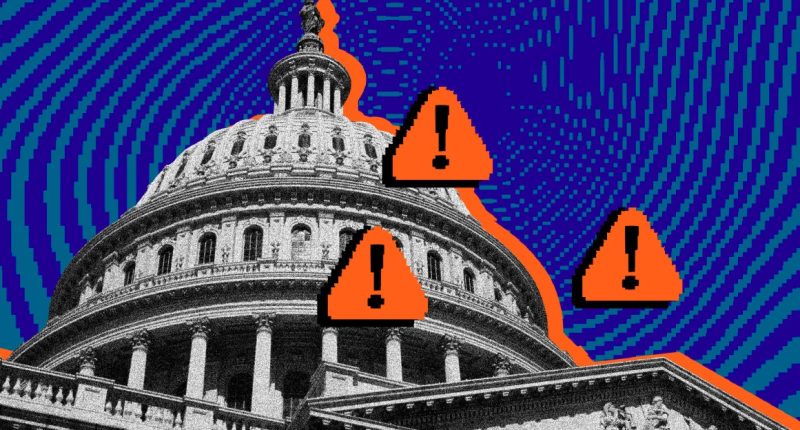Share this @internewscast.com
Congress’ least favorite law is once against facing an existential challenge by bipartisan opponents.
Sens. Lindsey Graham (R-SC) and Dick Durbin (D-IL), the top Democrat on the Judiciary Committee, are preparing to reintroduce legislation that would sunset Section 230 of the Communications Decency Act within two years. The bill, as first reported by The Information, aims to eliminate the protections that web services and users have benefited from since the 1990s, which form the basis of much of the internet’s current functioning. Graham has been pushing for this proposal since 2020, and his spokesperson, Taylor Reidy, has confirmed that reintroducing the bill is currently being planned.
Section 230 provides immunity to any “interactive computer service” or its users from legal liability for content created by others. This provision allows social media platforms, blogs, and even listserv operators to moderate content without the fear of facing prolonged legal disputes for each moderation decision. However, critics argue that Section 230 either diminishes the motivation for major social networks to combat illegal content such as abuse and harassment, or on the contrary, grants these platforms excessive freedom to remove content that may not be illegal.
In a statement, Durbin expressed his stance on Section 230, stating, “Section 230, and the legal immunity it provides to Big Tech, has been on the books since 1996—long before social media became a part of our daily lives. To the extent this protection was ever needed, its usefulness has long since passed.”
Section 230 had bipartisan support when it became law in 1996, when the internet was a relatively small part of many people’s lives. But it’s come under bipartisan fire as the power of tech companies has multiplied and attracted blame for a variety of societal ills. Despite that, it’s been difficult for any single proposal for reform to gain momentum, since the ways that Democrats and Republicans think the law should change has largely fallen along partisan lines. In general, past Democratic proposals have sought to make it easier to hold platforms accountable for harmful content they allow to spread on their services, while Republican proposals have sought to punish platforms for restricting certain kinds of content.
The idea of sunsetting Section 230 is not new — Graham introduced a bill to repeal the law back in late 2020. When he reintroduced it in 2021, it had two Republican co-sponsors. But introducing a repeal with the backing of a prominent Democrat could give the proposal new status and momentum. The top bipartisan lawmakers on the House Energy and Commerce Committee floated something similar last year.
But even with bipartisan support, passing any tech legislation has lately proved to be a Sisyphean task. That’s on top of a constitutional crisis that has thrown Congress’ power into question and raised the possibility that the Trump administration could abuse or selectively enforce any new law.
Even with bipartisan support, passing any tech legislation has lately proved to be a Sisyphean task
The theory behind a repeal of 230 is that it will force Congress (and industry lobbyists) to renegotiate if they want to retain any of the protections it provided. Graham said in a 2020 statement that the bill would give Congress “two years to find an acceptable alternative or allow the legal liability protections to go away.”
Nongovernmental Section 230 critics like Digital Content Next, which represents publishers including The Verge’s parent company Vox Media, see value in putting pressure on tech companies to engage in solutions, rather than reject attempts at reform outright. “The beauty of the sunset bill is, I think it would bring platforms to the table in a more thoughtful way,” says Chris Pedigo, DCN’s SVP of government affairs.
“I’m under no illusion that it will be easy to pass legislation to protect kids online and finally make the tech industry legally accountable for the harms they cause, like every other industry in America,” Durbin says in his statement. “But I hope that for the sake of our nation’s kids, Congress finally acts.”









